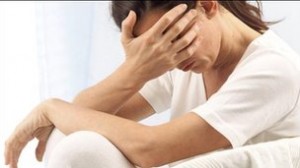Both the stress of trying to conceive a baby and pregnancy can affect a woman’s mental health. You may feel sad, scared,or not in control of your life either when you are trying hard to conceive or when you are pregnant. You may worry about the cost associated with assisted reproduction and/ or pregnancy. You may worry about the new responsibilities that come with being a parent.
Don’t keep these feelings to yourself. Get help if you feel depressed, anxious, or overwhelmed! Preventing or treating depression helps both you and your child, and may also lower your child’s risk of developing depression or other health problems later.
Pregnancy and mental health
Depression is a common problem during and after pregnancy. When you are pregnant or after you have a baby, you may be depressed and not know it. Some normal changes during and after pregnancy can cause symptoms similar to those of depression.
How long symptoms last, and how often they occur, is different for each patient.
Symptoms of depression include:
- Feeling restless or moody
- Feeling sad, hopeless, and overwhelmed
- Crying a lot
- Having no energy or motivation
- Eating too little or too much
- Sleeping too little or too much
- Having trouble focusing or making decisions
- Having memory problems
- Feeling worthless and guilty
- Losing interest or pleasure in activities you used to enjoy
- Withdrawing from friends and family
- Having headaches, aches and pains, or stomach problems that don’t go away
- Having suicidal thoughts
- Your doctor can figure out if your symptoms are caused by depression or something else.
Certain factors may increase your risk of depression during and after pregnancy:
- A personal history of depression or another mental illness
- A family history of depression or another mental illness
- A lack of support from family and friends
- Anxiety or negative feelings about the pregnancy
- Problems with a previous pregnancy or birth
- Marriage or money problems
- Stressful life events
- Young age
- Substance abuse
Women who are depressed during pregnancy have a greater risk of depression after giving birth. It’s important to know that if you take medicine for depression, stopping your medicine when you become pregnant can cause your depression to come back. Do not stop any prescribed medicines without first talking to your doctor. Not using medicine that you need may be harmful to you or your baby.
Postpartum depression:
After giving birth, about 85 percent of women have some kind of upset mood. For most women, this doesn’t last long. But 10 to 15 percent of women will feel seriously depressed or anxious.
Treatment:
The two common types of treatment for pregnancy-related or postpartum depression are:
Talk therapy:
This involves talking to a therapist, psychologist, or social worker to learn to change how depression
makes you think, feel, and act.
Medicine:
Your doctor can prescribe an antidepressant medicine. These medicines can help relieve symptoms of depression.
Learn more about taking medications during pregnancy:
These treatment methods can be used alone or together. If you are depressed, your depression can affect your baby. Getting treatment is important for you and your baby. Talk with your doctor about the benefits and risks of taking medicine to treat depression when you are pregnant or breastfeeding.

